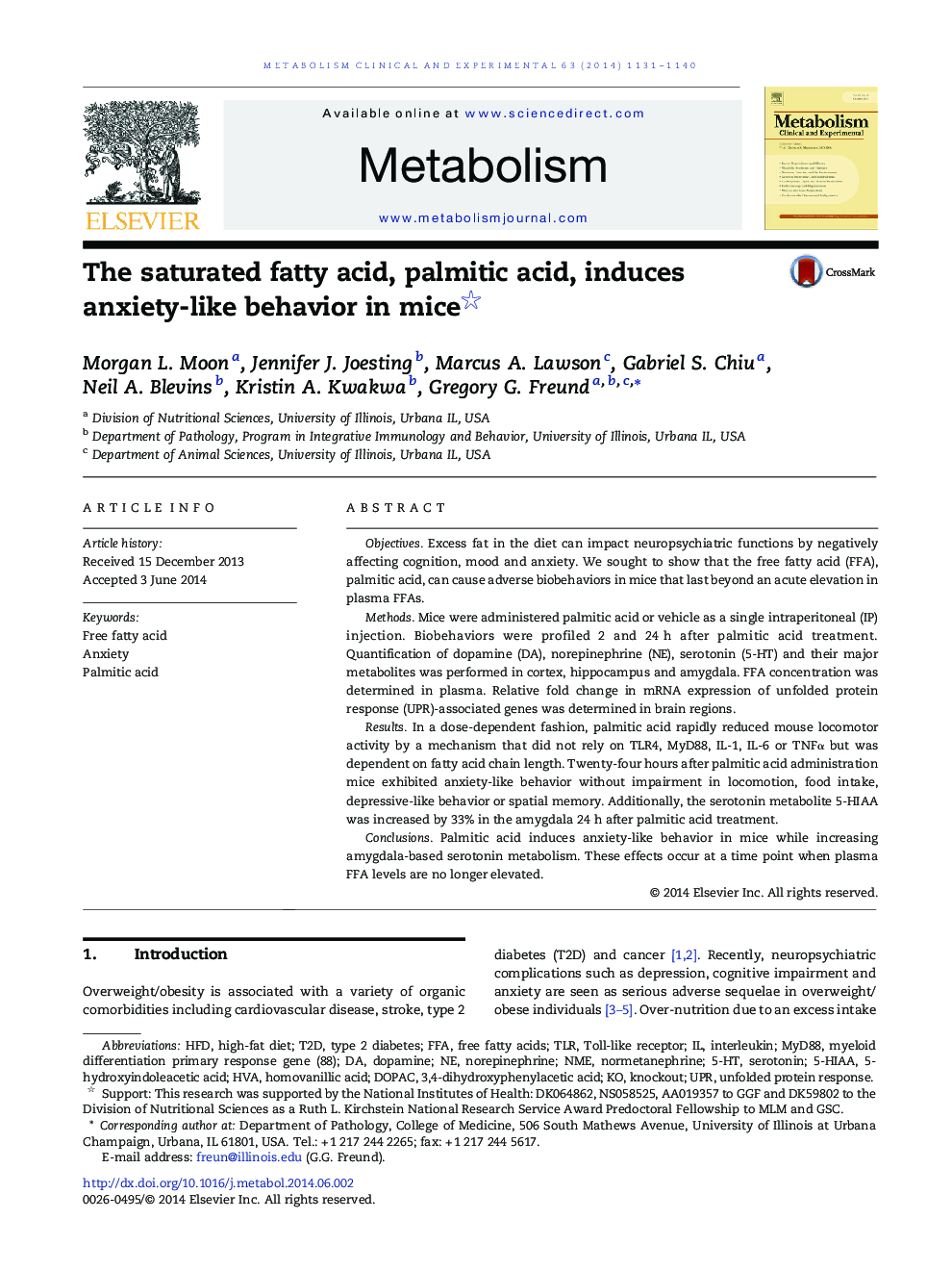| کد مقاله | کد نشریه | سال انتشار | مقاله انگلیسی | نسخه تمام متن |
|---|---|---|---|---|
| 5903370 | 1157074 | 2014 | 10 صفحه PDF | دانلود رایگان |
ObjectivesExcess fat in the diet can impact neuropsychiatric functions by negatively affecting cognition, mood and anxiety. We sought to show that the free fatty acid (FFA), palmitic acid, can cause adverse biobehaviors in mice that last beyond an acute elevation in plasma FFAs.MethodsMice were administered palmitic acid or vehicle as a single intraperitoneal (IP) injection. Biobehaviors were profiled 2 and 24 h after palmitic acid treatment. Quantification of dopamine (DA), norepinephrine (NE), serotonin (5-HT) and their major metabolites was performed in cortex, hippocampus and amygdala. FFA concentration was determined in plasma. Relative fold change in mRNA expression of unfolded protein response (UPR)-associated genes was determined in brain regions.ResultsIn a dose-dependent fashion, palmitic acid rapidly reduced mouse locomotor activity by a mechanism that did not rely on TLR4, MyD88, IL-1, IL-6 or TNFα but was dependent on fatty acid chain length. Twenty-four hours after palmitic acid administration mice exhibited anxiety-like behavior without impairment in locomotion, food intake, depressive-like behavior or spatial memory. Additionally, the serotonin metabolite 5-HIAA was increased by 33% in the amygdala 24 h after palmitic acid treatment.ConclusionsPalmitic acid induces anxiety-like behavior in mice while increasing amygdala-based serotonin metabolism. These effects occur at a time point when plasma FFA levels are no longer elevated.
Journal: Metabolism - Volume 63, Issue 9, September 2014, Pages 1131-1140
